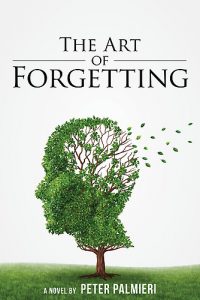
To outsiders he has everything to look forward to and nothing to regret, but beneath his veneer of success and boyish charms, his “feigned nonchalance” hides a desperate hidden struggle against something that threatens to swallow his life as it has his family generations before him: a struggle against a memory loss and dementia which runs in his family, something which had lead to the trauma of his father’s death several years prior, something he feels he is obligated if not fated to find a cure for.
On the cusp of a breakthrough, he meets his first exception to his rules about women in a long time, who threatens to tear down his emotional walls with a disturbing ease, and from here begins a whirlwind of romance and danger as his life’s work and his one lifeline to the future begins slipping from underneath him, his family and friends with it.
The Art of Forgetting gives the sense of an author who has done his reading, with intimate but succinct detailing of every person, every location and every relevant fact put forward. Palmieri’s background really shows through and is obviously heartfelt. Each character feels unique in their own way, from clinical-minded perverts with a charm that feels natural to devoted Catholics with clear worries and regrets, with a well-painted cast in between who bounce conversation and action back and forth easily, making the read seem very real, believable and current.
Admittedly, reliance on these few current references and research could easily cause the book to become dated to sharp minds sooner than others, especially when its explanations occasionally border on science fiction with jargon that seems more akin to an episode of Star Trek. If words like “hippocampus” and “prions” pass you by, you might find things difficult to understand at times, but the heart of the story continues to be felt throughout and these moments make up only a fraction of the discourse. Occasionally a more skeptical reader may find a situation a little convenient or that the character of Lloyd may find himself a bit luckier than belief as the story waxes lyrical in the romantic at times, daring to flirt with the classics with lines like “an unspoken intimacy. An inexplicable bond” that occasionally feel out of place, but fit the genre and tone relatively well.
Characters and situations nonetheless seem balanced and real, with believable motivation and, at least in context of the story, believable lives. At heart the story is a personal struggle of a character you have to learn to like – demons included, and eventually hope to see succeed both on a personal level and to see goals achieved. The characters grow for better and worse and despite the level of detail given in every sentence the book is well-paced – this pacing may feel a bit confusing at first, but to readers who persist each chapter ties together well. At 47 chapters the book never feels too long or too short and delivers satisfactory pay-offs for the majority of the tension it builds, be it romantic or dramatic.
The author’s strengths and interests have wrought a very sincere and erudite book overall – well worth a read to anyone who may find this description intriguing.
Links
Amazon
Barnes & Noble
Get an Editorial Review | Get Amazon Sales & Reviews | Get Edited | Get Beta Readers | Enter the SPR Book Awards | Other Marketing Services






















Thanks for the very balanced review!
My book is now exclusive to Amazon and is free on Kindle until 9/5/13.
I’m happy to say that it is ranked #1 on Amazon in the free medical fiction and medical thrillers categories, #7 in thrillers and #49 in free fiction.
I would love to hear any feedback from my readers so don’t hesitate to comment on my webpage or shoot me an e-mail
And tell all your friends to buy it… on September 6.
Cheers!
Peter Palmieri